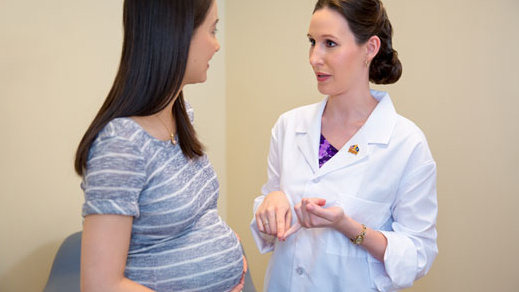Key points
- CDC recommends pertussis vaccines for infants and children, adolescents, and pregnant women.
- CDC also recommends a dose of pertussis vaccine for adults who didn't receive one either as an adolescent or adult.
- Talk with your patients about the recommended immunization schedule for pertussis.

Background
The United States uses two types of combination vaccines that include protection against pertussis: DTaP and Tdap.
Both also include protection against diphtheria and tetanus. Children younger than 7 years of age receive DTaP, while older children and adults receive Tdap.
The following summarizes CDC's current age-based recommendations for DTaP and Tdap. Access the official, full text of CDC's current and historical DTaP/Tdap/Td vaccine recommendations.
Infants and children
CDC recommends routine DTaP vaccination for all infants and children younger than 7 years old.
Administer a 5-dose DTaP series, 1 dose at each of the following ages:
- 2 months
- 4 months
- 6 months
- 15 through 18 months
- 4 through 6 years
Adolescents
CDC recommends routine Tdap vaccination for all adolescents.
Administer a single dose of Tdap at 11 to 12 years of age.
Catch-up guidance
Vaccinate children who miss their shots or start the series later than recommended. Depending on the child's age when vaccination begins, the recommendation varies for
- Type of vaccine
- Number of doses
- Interval between doses
Job aids for simplifying catch-up guidance
Use the following job aids to help interpret table 2 of the child and adolescent immunization schedule.
Pregnant women
CDC recommends giving a single dose of Tdap during every pregnancy, preferably during the early part of gestational weeks 27 through 36.
CDC only recommends Tdap in the immediate postpartum period for women who've never received Tdap, including during
- Adolescence
- Adulthood
Women who've received Tdap previously but aren't vaccinated during pregnancy shouldn't receive a dose of Tdap postpartum.
Adults
Never received Tdap
CDC recommends a single dose of Tdap for adults who've never received Tdap. It can be given at any time, regardless of when they last got Td.
Adults 65 years or older
When feasible, administer Boostrix® (Tdap) to adults 65 years or older. Adacel® (Tdap) is only approved for use up through 64 years of age. However, vaccine providers shouldn't miss an opportunity to vaccinate adults 65 years or older with Tdap. Therefore, providers may administer the Tdap vaccine they have available, and it will be valid.
Healthcare personnel
Healthcare personnel should follow the same immunization guidance provided for all adults.
Patients with a contraindication
For patients with a contraindication specific to pertussis-containing vaccines, CDC provides these age-based recommendations.
Children <7 years of age: See About young children with a contraindication to pertussis-containing vaccines.
Persons ≥7 years of age: Use Td instead of Tdap.
Find more resources below about contraindications.
Resources
Contraindications and precautions
General Best Practice Guidelines for Immunization
Pink Book chapter on
Immunization schedules
Child and adolescent immunization schedule
Vaccine Information Statements
DTaP: English | Other languages
Tdap: English | Other languages
